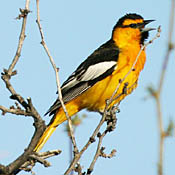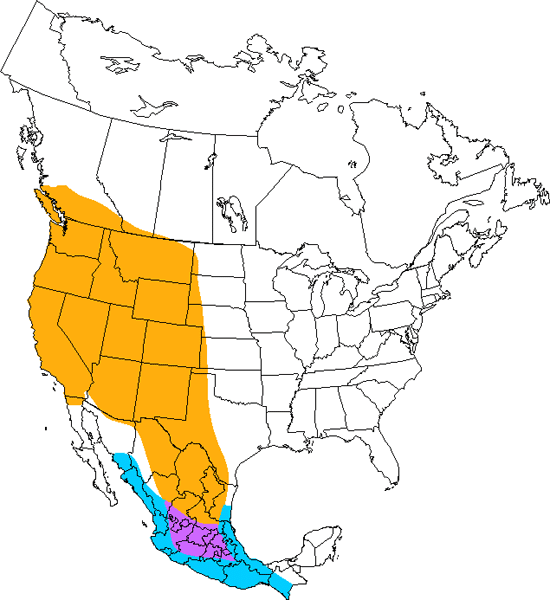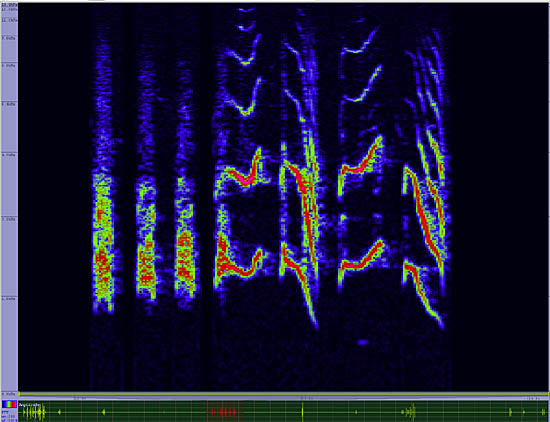Bullock's Oriole
Icterus bullockii

Perching

Length: 9 in. (23 cm )
This gaudy species nests in riparian forests and open areas with scattered trees. Its long hanging nest is placed far out on the end of a high branch and woven from plant fibers, grass and hair. It feeds mainly on insects and spiders but in the late summer switches to fruits.
The four-digit banding code is BUOR.
Bibliographic details:
- Article: Bullock's Oriole
- Author(s): Dr. Biology
- Publisher: Arizona State University School of Life Sciences Ask A Biologist
- Site name: ASU - Ask A Biologist
- Date published: 13 Jul, 2017
- Date accessed:
- Link: https://askabiologist.asu.edu/activities/bird/bullocks-oriole
APA Style
Dr. Biology. (Thu, 07/13/2017 - 15:36). Bullock's Oriole. ASU - Ask A Biologist. Retrieved from https://askabiologist.asu.edu/activities/bird/bullocks-oriole
Chicago Manual of Style
Dr. Biology. "Bullock's Oriole". ASU - Ask A Biologist. 13 Jul 2017. https://askabiologist.asu.edu/activities/bird/bullocks-oriole
Dr. Biology. "Bullock's Oriole". ASU - Ask A Biologist. 13 Jul 2017. ASU - Ask A Biologist, Web. https://askabiologist.asu.edu/activities/bird/bullocks-oriole
MLA 2017 Style
Be Part of
Ask A Biologist
By volunteering, or simply sending us feedback on the site. Scientists, teachers, writers, illustrators, and translators are all important to the program. If you are interested in helping with the website we have a Volunteers page to get the process started.






